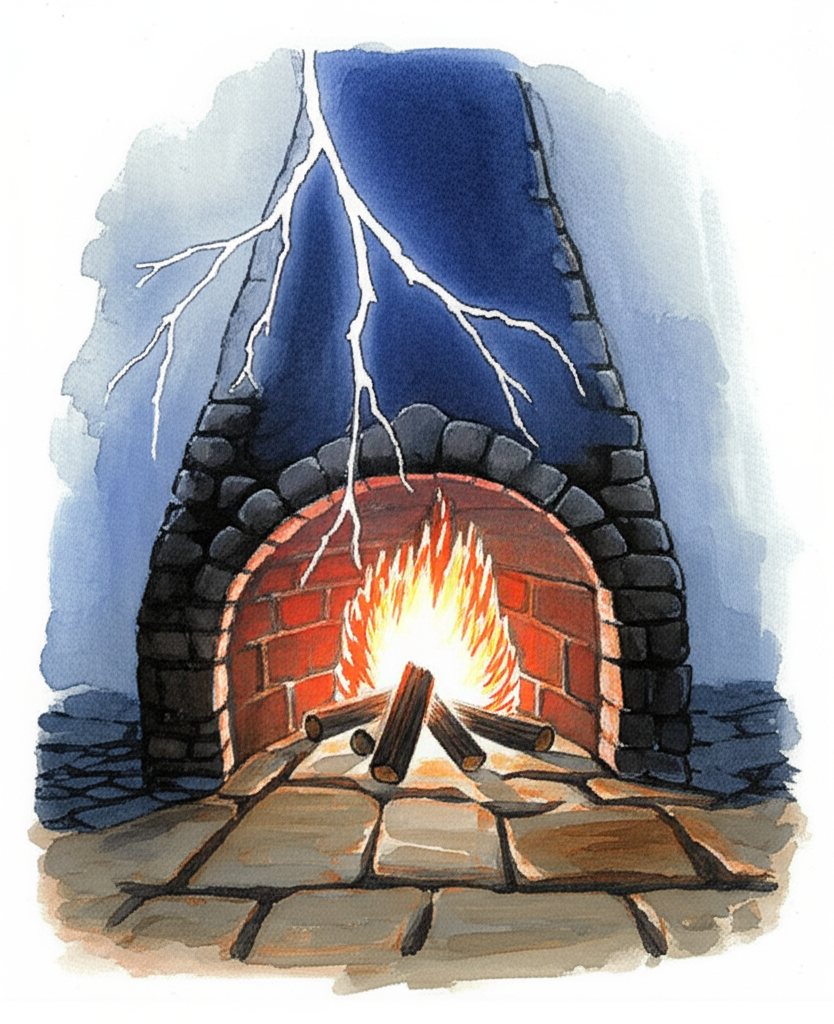
Lightning, a dramatic display of nature’s power, has been a source of awe and fear throughout history, giving rise to numerous cultural beliefs and superstitions. One such superstition claims that lightning will never strike a house with a burning fire, a belief rooted in religious symbolism and attempts to appease divine forces.
Historically, lightning held significant meaning across various cultures. In ancient Rome, lightning bolts were seen as the javelins of Jove, the king of the gods, who used them to punish sinners. Jove’s eagle was said to carry these fiery bolts, capable of striking down individuals or even entire armies. Similarly, many native American and African legends feature thunderbirds, powerful mythical creatures associated with thunder and lightning. In South Africa, the Umpundulo, a thunderbird, was believed to peel bark from trees with its blazing talons, with its feathers emitting lightning and its wings generating thunder.
Early folklore regarding lightning was also heavily influenced by Old Testament accounts depicting a wrathful God using lightning against his enemies, such as the Philistines. This is exemplified in the second book of Samuel (2 Samuel 22:15, King James Version), which states, ‘And he sent out arrows, and scattered them; lightning, and discomfited them.’ The notion of lightning as a tool of divine retribution took hold in many societies.
This fear of incurring God’s anger led to the development of various superstitions aimed at appeasing Him during storms. The belief that ’lightning will never strike a house with a burning fire’ is one such example. Fire is a potent symbol of faith in numerous religions, and maintaining a burning fire in the hearth was believed to protect a home from lightning strikes. The act of keeping the fire alive signified that the household was actively maintaining its faith and warding off divine wrath. Moreover, other customs arose, such as avoiding conversation about the storm as a sign of respect and strictly prohibiting pointing at the lightning.
Over time, the interpretation of lightning as divine punishment has persisted among believers, even in more secular times. A notable example occurred in 1985 when York Minster, a prominent cathedral in the UK, was damaged by fire. When the Bishop attributed the fire to a lightning strike, a reader of The Times newspaper responded with a letter stating, ‘“Just lightning” says the Bishop dismissively. To those of us as old-fashioned as I, lightning is the wrath of God.’ This incident highlights the enduring presence of the superstition in modern society, even as scientific explanations for lightning have become widely accepted.
In conclusion, the superstition that lightning will never strike a house with a burning fire reflects a complex interplay of historical beliefs, religious symbolism, and cultural practices. While scientific understanding has demystified the phenomenon of lightning, the enduring nature of this superstition serves as a testament to the lasting power of folklore and the human desire to understand and control the forces of nature.